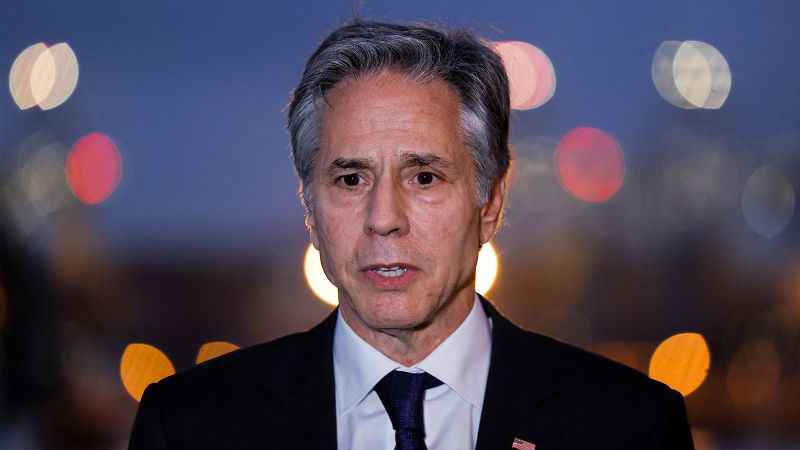Secretary of State Antony Blinken is scheduled to meet with Palestinian and Arab American leaders, who plan to advocate for policy changes regarding the Israel-Hamas conflict. The meeting has been in the works for about a month, with leaders requesting the opportunity to meet with Blinken to discuss their concerns. The tensions between the Biden administration and the Palestinian, Muslim, and Arab American communities have been escalating, and this meeting is an attempt to address those issues.
The Biden administration has been facing challenges in connecting with Arab American voters, who have been boycotting meetings and voting uncommitted in the presidential primaries. Pro-Palestinian college protests demanding an end to US support for Israel’s military have been occurring on campuses across the country. Despite halting one shipment of bombs to Israel and potentially stopping others in the event of a major invasion, the administration has expressed its continued military support for Israel’s defense.
While a State Department spokesperson did not comment on the upcoming meeting, the mounting opposition from Muslim, Arab American, and progressive voters over the Gaza conflict poses a challenge for President Biden’s reelection campaign. Meetings between Biden administration officials and members of these communities have not resulted in increased collaboration. Blinken has previously engaged with these communities twice since October, and this will be his third meeting. In a previous meeting with Palestinian Americans in February, some attendees declined to participate, believing they could not influence the administration’s policy.
Biden recently hosted Muslim leaders at the White House to discuss Gaza, but the meeting encountered issues when the sole Palestinian American participant, Dr. Thaer Ahmad, walked out in protest. Ahmad, who had traveled to Gaza to treat wounded civilians, handed Biden a letter from an 8-year-old orphan girl in Rafah before leaving. The administration continues its efforts to navigate the complex relationships between the US, Israel, and the Palestinian and Arab American communities. Additional reporting has been incorporated into the story to provide a more comprehensive overview of the situation.


